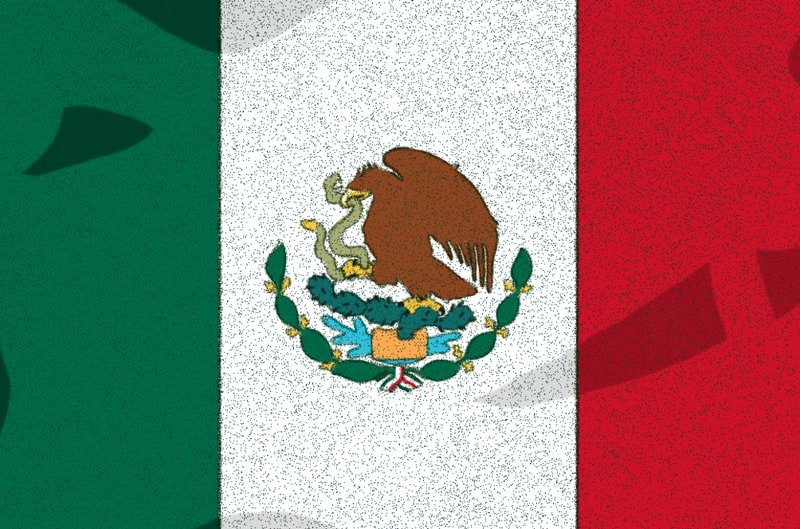Pro-Bitcoin Mexican Senator Proposes CBDC Legislation

- Mexican Senator Indira Kempis recently introduced draft legislation amending the country’s Monetary Law to include currencies issued by the central bank.
- Kempis outlines in repetition that intervention from the Mexican state is necessary to the success of the financial system of Mexico.
- She also says that state intervention is “native” and “inevitable” for the citizenry of Mexico to possess human rights and for the development of society.
Mexican Senator Indira Kempis Martínez filed a draft decree amending article 22 of the country’s Monetary Law to promote the idea of a central bank digital currency (CBDC), but outright defined it as necessary to human rights.
The original legislation states that in Mexico, legal tender currencies include banknotes issued by the Bank of Mexico and metal coins. Next, it allows the Ministry of Finance and Public Credit the credibility for attempting to replace alloys within the coin-based currencies, and calls for the same Ministry to publish the “Official Journal of the Federation” detailing resolutions related to replacement alloys, should they be used.
The amended legislation reads the exact same, except for two additions. The first adds “virtual assets” to the language of article 22, whereas the second adds a new item to the list with a new type of currency to fall under legal circulation status:
“D). The digital currency of the Central Bank.”
Why does Kempis support a central bank digital currency for Mexico?
Financial systems operations “need the intervention of the Mexican State through the creation of laws, secondary provisions and, above all, the generation of public policies that promote development and economic growth; the stability of the financial system and the protection of users,” the draft explains.
Kempis argues that intervention of the Mexican State in financial systems is necessary. Furthermore, the draft makes the case for state intervention being central to the most basic humanitarian assurances of the Mexican people.
“The intervention of the Mexican State in the economy must be appreciated and assumed by the different legal operators as a native and inevitable relationship with the discourses of human rights, competitiveness and development.”
In other words, Kempis is stating that Mexican citizenry could not expect to possess human rights or the ability to progress as a society without the intervention of the Mexican state.
The draft bill also outlines the need for the Mexican state to protect users from malicious service providers, be it intentional or unintentional.
“It is essential that the State, through the regulation of the financial system, promote a greater access to and use of financial services through intervention to ensure that service providers provide fair treatment and quality service to their users, as well as how to create financial education programs that provide the necessary knowledge for Mexicans to make informed and aware decisions of their resources,” the text reads.
Absent the Mexican state, the draft would arguably lead one to believe that informed decisions involving financial education are impossible to achieve.
Later in the draft, Kempis’ text details how certain protocols, like Bitcoin, are decentralized and allow anyone with a node to join the network and participate in its trustless security mechanism. This is accomplished by taking a computer or hardware device specifically designed for running the Bitcoin protocol and simply connecting it to your peers.
However, Kempis’ bill swiftly pivots to say that this decentralization is not necessary for a digital form of money.
“Regarding protocols, computers operating on the network, which record the transactions of road assets, must follow the emission rules in order to confine transactions, and those rules must be established in predetermined protocols,” the bill reads. “There is a possibility that new computers may be part of the network. However, it is not a necessary feature.”
This may come as a surprise as Kempis last week shared, during the Bitcoin 2022 conference, her intentions of creating draft legislation that would see bitcoin becoming legal tender in Mexico. Not only do we not see favorable terms for bitcoin in the draft, we don’t even see it being mentioned. Interestingly enough, this draft is dated April 6, the day before her announcement at the conference. It is unclear if another draft is intended or if bitcoin is to be included in the verbiage of virtual assets presented in this amendment.
CBDC As A Necessary Foundation For Bitcoin?
Kempis later tweeted a response as she fielded questions from concerned Bitcoiners on the matter. She argued that this legislation is a necessary component to the broader goal of making bitcoin legal tender.
“In Mexico, the only one with the power to decide the legal tender currencies is the Bank of Mexico,” she wrote. “We need this step. Otherwise there is no matter to discuss it in the Legislative Branch. It is a process. Nothing is written in stone.”
Bitcoin Magazine asked Kempis for clarification on how the central bank being the only one to recognize currencies as legal tender implies the need for a CBDC.
“The Mexican Financial System Stability Council…stated in 2019 a conservative position towards cryptocurrencies, defined as virtual assets in the Fintech Law,” Kempis said in a direct message. “According to this, we can assure that there will be a considerable distance between the virtual assets and the Mexican financial system also considering that in Mexico, the Mexican Central Bank is legally entitled to determine in secondary regulation the characteristics that virtual assets must fulfill to be used by financial entities.”